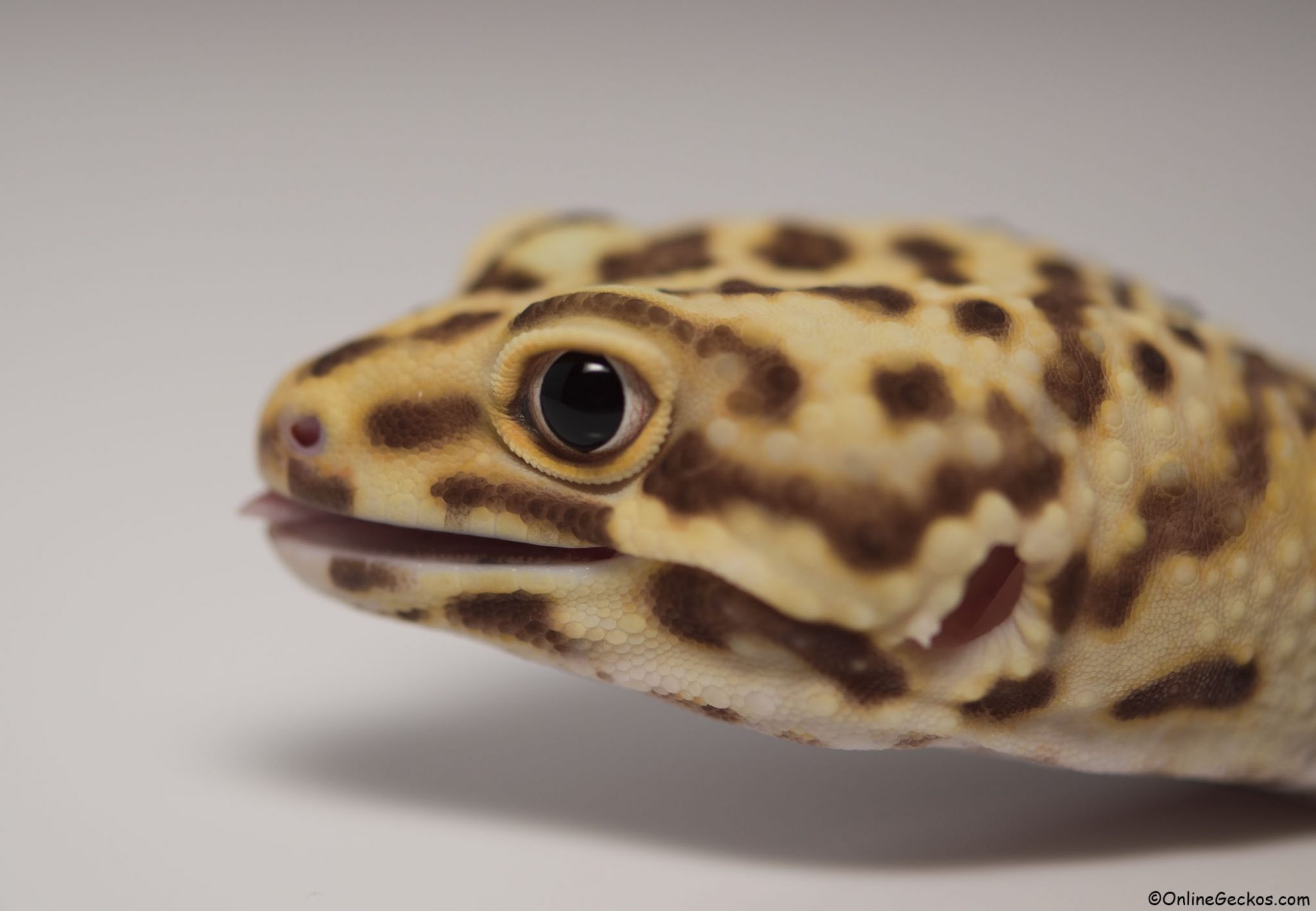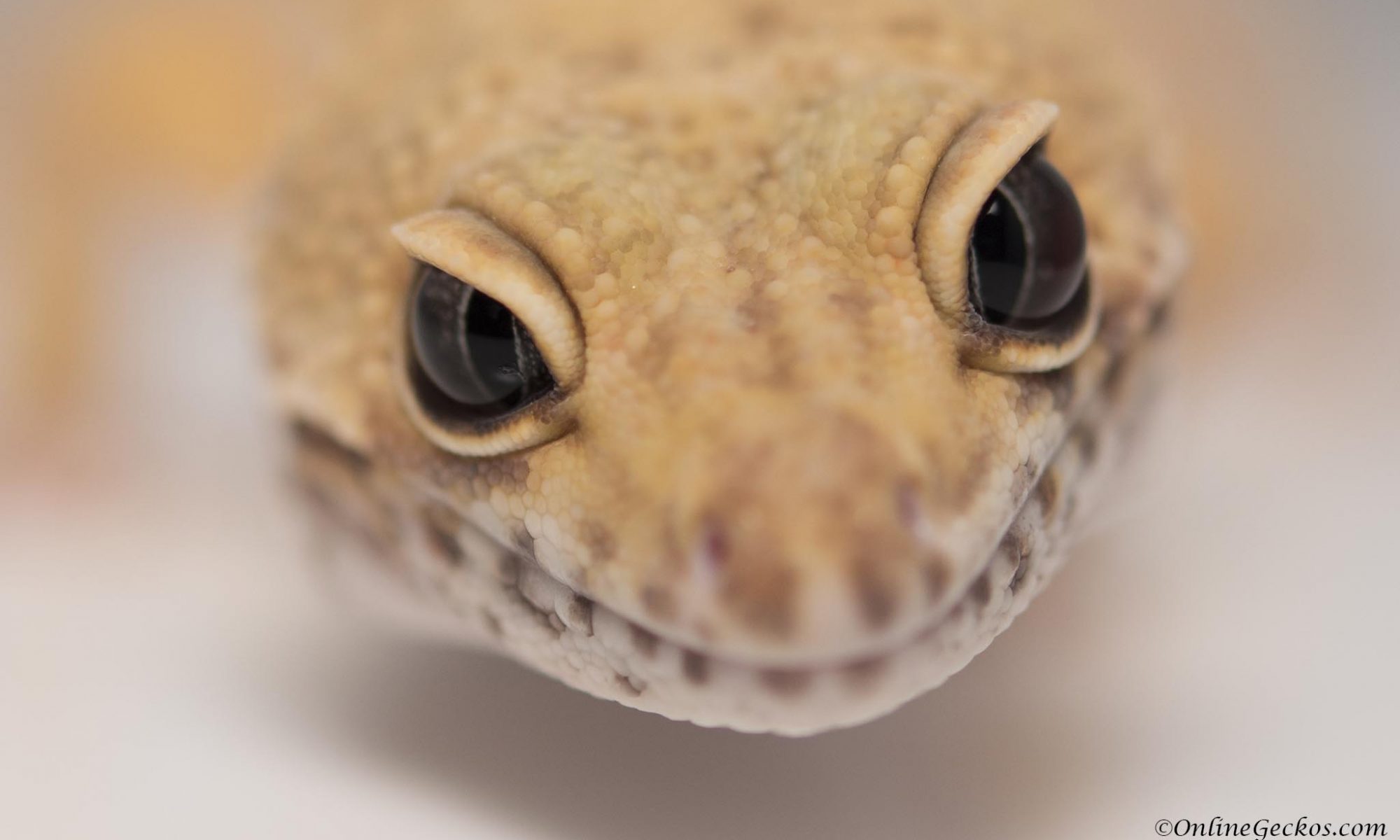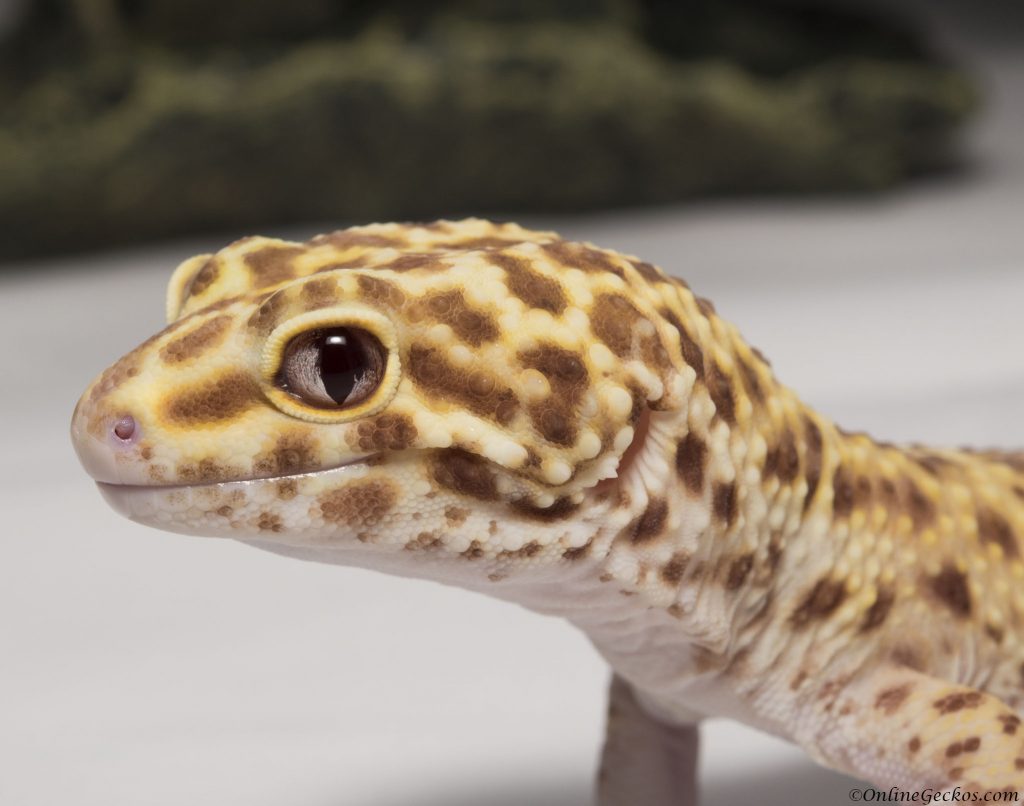Do leopard geckos bite? We see this question pop up every now and then. It is a fair & valid question. Perhaps you are a concerned guardian looking for information on leopard geckos before purchasing one. Or maybe you are wanting to get into reptiles but you don’t like reptiles that bite. Some people even have fear of reptiles, called herpetophobia. It is a rather common animal phobia. Herpetophobia is a condition that can be managed and cured with proper clinical treatment.
Do leopard geckos bite? The answer
Yes, leopard geckos can bite. But it’s not common for leopard geckos to bite. When scared or threatened, leopard geckos most often choose to flee rather than fight. When leopard geckos do bite, sometimes there are reasons for it. We’ll go through some of the reasons below so you can be informed and perhaps avoid getting bit in the future.
1. Male leopard geckos can get territorial
It’s wired in their genes to compete for territory and breeding mates. If you have multiple male leopard geckos in your collection, and say you’ve just handled one of the males, you may have the scent of that particular male on your hands. Without washing your hands, if you reach in to handle another male, the other male may mistaken your hand for a competing male leopard gecko. This may cause you to get bit. This happens more often during the breeding seasons. To avoid scent transfers, simply wash your hands more often.
2. Leopard geckos get very excited when they are hungry
If you reach your hand in when they are hungry, they may think your fingers are food. Your finger movements trigger their hunting instinct. It’s rather easy to avoid this however. Observe their mood when you open up their tank. If they are looking up at you, moving excitedly with small jerky movements, tail raised off the ground slightly, this means your geckos are hungry. You best feed your geckos first before handling them.
Or if you must handle your geckos when they are hungry and aiming for your fingers, put one hand out in front of them to distract them first. Then scoop them up from the side with another hand. This will save you from getting bit.
3. In rare instances, you will find a leopard gecko that is overly aggressive and likes to bite
You don’t find many of them, but they do exist. These geckos will often raise their tail and wave their tail around like a snake (this is their defensive posture). If you attempt to pick them up, they may charge at you and give you a warning snap first. When you see these behaviors, it’s best to leave them alone. Observe to see if they will calm down after awhile. It may take days or even weeks for them to get used to you.
If these behaviors are persistent, then you have an overly aggressive leopard gecko. There’s unfortunately no way to train them not be aggressive. So for these leopard geckos, you should avoid handling them. They are best kept as display leopard gecko pets; beautiful to look at, but hands off. You definitely should not allow children to handle aggressive geckos. These geckos are rare, but they do exist.
Do leopard geckos bite? Further information
Generally leopard geckos are more skittish when they are young. If you have a hatchling or juvenile leopard gecko, then it’s natural for them to bark and snap at you. Once they reach adulthood (when they are 1 year or older), they should become more docile. Leopard geckos are actually the best reptile pets for handling, they make for great beginner reptile pets. Leopard geckos for the most part tolerate limited handling very well.
Sometimes your leopard gecko will get spooked by sudden movements. They may start waving their tail and act skittish when that happens. It’s a good practice to move slow when you are handling them. Avoid sudden hand gestures. If you are afraid of handling your gecko, pulling your hand back fast will most definitely spook them. Slow and steady is the best way to handle your leopard gecko. You want to handle your gecko with confidence. If you are acting scared, and doing the reach & pull back, reach & pull back motions, that will only make things worse.
We recommend for the safety of both the geckos and your children, that you always supervise handling sessions. Children and leopard geckos do not mix well unsupervised. We’ve heard sad stories when kids are allowed access to leopard geckos alone. If you are a parent or guardian, please make sure the gecko tank is safe and secured.
Do leopard geckos bite? What happens if
Leopard gecko bites can cause bacterial infection. If you are bit, make sure to wash it thoroughly with antibacterial soap. Their teeth aren’t sharp, but they do chomp down hard. What usually happens is when people get bit, their instinct is to pull the gecko off. When you do this, you actually make it worse because your skin will tear. It’s much better if you allow the gecko to let go first.


